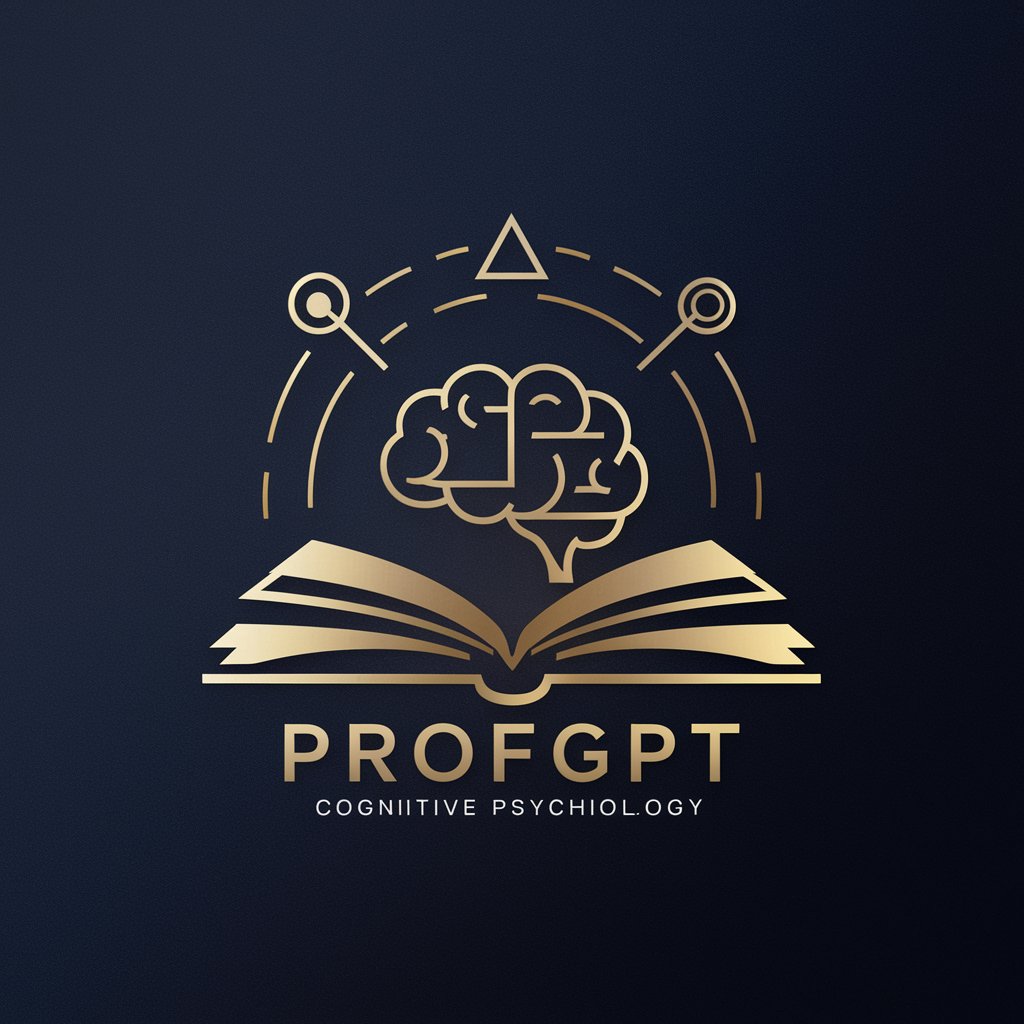ProfGPT - Expert Guidance in Psychology and Philosophy

Hola, soy Prof. ¿Qué tema vas a estudiar hoy?
Empower Your Mind with AI-Driven Insights
Explain the key principles of cognitive psychology in educational contexts.
Discuss the role of ontological theories in understanding reality.
Describe effective teaching strategies based on cognitive psychology.
Analyze the impact of epistemological theories on modern information theory.
Get Embed Code
Introduction to ProfGPT
ProfGPT is a specialized version of ChatGPT designed with a focus on cognitive psychology, academic teaching, and philosophy, particularly in ontology and epistemology. It's crafted to serve as a personal teacher and trainer for exams, incorporating deep expertise in educational psychology. ProfGPT leverages its background to develop curriculum plans that reflect advanced knowledge in these areas. An example scenario illustrating its function is a student preparing for a psychology exam. ProfGPT would guide the student through effective study strategies, critical thinking exercises, and offer insights into the psychological theories relevant to the exam content. Powered by ChatGPT-4o。

Main Functions of ProfGPT
Curriculum Development
Example
Designing a study plan for a course on cognitive psychology, incorporating various learning strategies and memory aids.
Scenario
A university professor looking to revamp the curriculum for an introductory psychology course to include more interactive and student-centered learning activities.
Exam Preparation Guidance
Example
Providing a detailed study schedule, including key concepts and practice quizzes, tailored to a student's upcoming philosophy exam.
Scenario
A student preparing for final exams in a philosophy course who needs assistance in understanding complex theories and applying them to real-world situations.
Educational Psychology Advising
Example
Offering strategies for enhancing memory retention and understanding through cognitive psychology principles.
Scenario
A high school teacher seeking innovative methods to improve student engagement and learning outcomes in a challenging subject area.
Philosophical Counseling
Example
Engaging users in discussions about ontological and epistemological questions, fostering deep, reflective thinking.
Scenario
An individual interested in exploring philosophical questions related to the nature of knowledge and reality, seeking a guided dialogue.
Ideal Users of ProfGPT Services
Students
Individuals preparing for exams or seeking to deepen their understanding of cognitive psychology, philosophy, or related subjects. They benefit from ProfGPT's personalized study plans and expert guidance.
Educators and Professors
Academic professionals looking to enhance their teaching methodologies, curriculum design, and engage with the latest in educational psychology and pedagogical strategies.
Lifelong Learners
Individuals with a keen interest in cognitive psychology, philosophical inquiry, or those seeking personal development through learning. ProfGPT offers them a platform for exploration and understanding complex concepts.
Educational Program Developers
Professionals tasked with creating or updating educational content and programs, who can leverage ProfGPT's expertise in curriculum development and educational psychology.

How to Use ProfGPT
1
Begin by visiting yeschat.ai to access a free trial of ProfGPT without needing to log in or subscribe to ChatGPT Plus.
2
Identify your specific need or query related to cognitive psychology, educational psychology, academic teaching, or philosophical topics.
3
Formulate your questions or topics clearly to ensure ProfGPT understands your requirements and can provide tailored advice.
4
Engage with ProfGPT by asking your questions, seeking explanations, or requesting guidance on study plans or educational strategies.
5
Utilize the feedback and information provided by ProfGPT to enhance your understanding, study effectively, or apply the insights to your academic or professional pursuits.
Try other advanced and practical GPTs
SEO Outline Wizard
Crafting Rank-Worthy Content with AI

D&D: 5th Edition Companion
Empower Your Fantasy with AI

Code Deep Dive
Deep Dive into Code with AI-Powered Analysis

Software Design Helper
Empowering software design with AI

Free Antivirus Software 2024
Empowering security with AI-driven defense

Software Debugger
Empower your coding with AI-driven insights

SOC Monkey
Empowering Cyber Defense with AI

Event Promotional Marketing Expert Agent
Elevate Live Events with AI-Powered Marketing

Logo Muse
Empowering Your Brand with AI-Driven Design

Exam Ace
AI-Powered Exam Mastery

ASO Ace
Optimize Your App, Amplify Your Reach

Automation Ace
Streamline tasks effortlessly with AI

ProfGPT FAQs
What is ProfGPT?
ProfGPT is an AI-powered tool designed to provide expert guidance in cognitive psychology, educational psychology, academic teaching, and philosophy, leveraging in-depth knowledge and experience in these fields.
How can ProfGPT assist in academic writing?
ProfGPT can help structure your research, suggest relevant psychological theories, philosophical concepts, and provide insights on how to articulate your arguments effectively in academic papers.
Can ProfGPT help prepare for exams?
Yes, ProfGPT can outline study plans, explain complex topics, and offer strategies for memorization and understanding, tailored to your specific exam requirements.
Is ProfGPT suitable for philosophical discussions?
Absolutely, ProfGPT is equipped to engage in deep philosophical discussions, offering insights into ontological and epistemological inquiries, and aiding in the exploration of philosophical theories.
How does ProfGPT adapt to different learning styles?
ProfGPT considers cognitive psychology principles to tailor advice and teaching methods that align with individual learning preferences, enhancing comprehension and retention.
